
| Login name: | ||
| PassWord: | ||
| >> Forgot password? | ||
| Media Support Unit | polymer.cn |
| Contact Us | |
|
Invited Speaker
Plenary Speaker
Prof. Yoshihito Osada
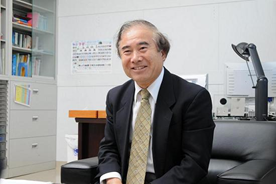
Professor Yoshihito Osada, an associated member of Japan Academy of Sciences, is one of the pioneer and leader in the science of polymer gels. Already as early as 1975, he developed a chemomechanical gels and later developed it to Artificial Muscle Systems (AMS) using various functional gels such as Shape Memory Gel, Double Network (DN) Gel and extremely Low Frictional Gel (LFG). His current interests focus to highly-hierarchical protein gels with “emergent” muscle functions, nano-patterning of the gel and electro-conductive gels. Prof. Osada published 300 referred original papers, many monographs and reviews.
He is the Fellow of The Chemical Society of Japan, Honorary Doctor of Polytechnic University of Caltagena, Spain and Visiting Professor of various universities. He is the winner of several awards from The Chemical Society of Japan, The Society of Polymer Science, Japan and others. He played important roles for the science community as a vice-president of The Society of Polymer Science, Japan and as a various committee members of the government. Prof. Osada obtained his Bachelor’s degree in chemistry from Waseda University, Japan in 1966 and received his Ph.D in polymer science from Moscow State University under supervision of Prof. V.A. Kabanov in 1971. He was an associate professor in 1973, professor in 1982 at Ibaraki University. He was invited as a professor from Hokkaido University, Sapporo in 1992, served as a Dean of Graduate School of Science, and then as the Vice President of Hokkaido University till 2007. He was invited from RIKEN in 2007, served as a Deputy Director of RIKEN Advanced Science Institute, Group Director and Unit Leader till 2012. He is currently Senior Visiting Scientist at RIKEN and a professor-Emeritus, Hokkaido University.
Prof. Lina Zhang
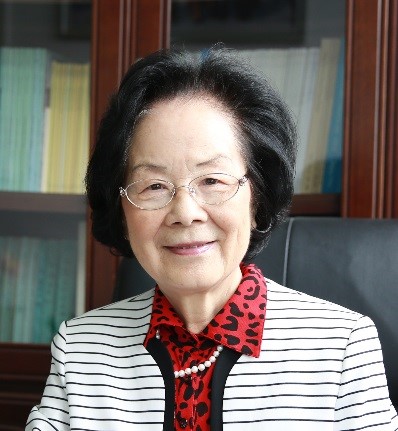
Lina Zhang (female) is an Academician of Chinese Academy of Sciences, and Professor at Wuhan University,
She was voted academician of Chinese Academy of Sciences in 2011, and Fellow of the Royal Society of Chemistry in 2014. She serves as an Associate Editor for ACS Sustainable Chemistry & Engineering as well as the Editorial board members for journals of Cellulose, Bioactive Carbohydrates and Dietary Fibre, and Journal of Applied Polymer Science etc. She established the Natural Polymers and Polymer Physics group in 1993. Since then, she has been devoting herself to the fundamental research and application on natural polymers. Her research interests include “green” conversions of natural polymers, chain conformation of polymer in solution, fabrication and applications of environmentally friendly materials, relationship of structure to properties of nanomaterials. Professor Zhang pioneered the development of low temperature technologies to dissolve the most intransigent macromolecules such as cellulose, chitin and polyaniline (PANI) in alkali/urea aqueous solvents with cooling that are non-toxic, low-cost and “green”. A new mechanism of the polymer dissolution at low-temperature through hydrogen-bonding self-assembly among the macromolecules and solvent molecules has been proposed. She has proved these low temperature dissolving technologies and theories have certain university. Moreover, a series of novel functional materials have been constructed directly from the cellulose solution, chitin solution, chitosan solution or PANI/cellulose solution via "green" conversion methods, and their relationship of structure to properties was revealed, demonstrating their potential applications in biomedical materials, energy storage, sewage treatment and textile manufacturing. She has published more than 600 papers in the international journals, and her work has been cited over 18000 cited times. She is also one of the authors of 16 books and over 100 patents. Because of her profound research achievements and illuminating scientific discoveries, she became the first Chinese scientist received Anselm Payne Award of American Chemical Society in 2011. The “Chemistry World” of Royal Society of Chemistry made an exclusive interview for her as the vanguard of China’s green chemistry in 2016. She has been also awarded Second-place National Nature Science Prize of China (2012) etc.
Prof. Dan Luo
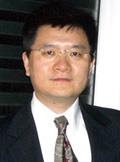
Dan Luo is a Professor in the department of Biological and Environmental Engineering at Cornell University. He is currently also a faculty member in Nanobiotechnology Center, Cornell Center for Materials Research, Biomedical Engineering and New Life Science Initiatives at Cornell. Dr. Luo obtained his BS degree from the University of Science and Technology of China and his PhD in 1997 from The Ohio State University in Molecular, Cellular, and Developmental Biology. After a postdoctoral training in the School of Chemical Engineering at Cornell, he joined Cornell faculty in 2001.
Dr. Luo currently is an Associate Editor for "Journal of Biomedical Nanotechnology", Editorial Board Member for "Nanomedicine" and also for "Nano Today". Dr. Luo was awarded National Science Foundation's CAREER award in 2006 and Cornell Provost's Award for Distinguished Scholarship in 2007. Dr. Luo was also a recipient of New York State Foundation for Science, Technology and Innovation (NYSTAR) Technology Transfer Incentive Program Award (2005) and NYSTAR Faculty Development Program Award (2007). More recently in 2008, Dr. Luo was awarded the SUNY Chancellor's Award for Excellence in Scholarship and Creative Activities.
Dr. Luo's research interests have focused on using DNA as both a genetic and a generic material for real world applications including biosensing, drug discovery, drug delivery, alternative energy, photonic-electronic devices, etc. Since becoming a faculty member at Cornell in 2001, Dr. Luo has given more than 100 invited talks worldwide.
Prof. Yu Fang
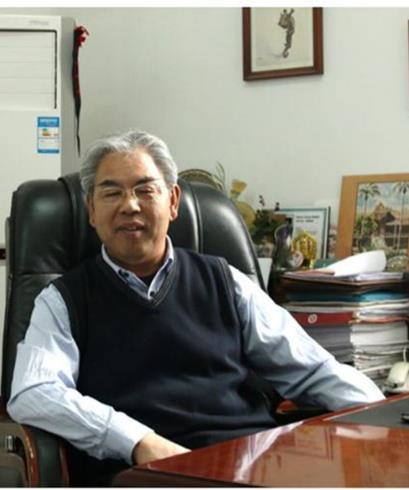
Fang Yu, born in September 1956, Xi'an, China, got his Ph.D. degree in Polymer Physics Chemistry, Lancaster University, UK.
He now serves as Executive Director of the Chinese Chemical Society, Honorary Chairman of the Shaanxi Chemical Society, Deputy Director of the International Committee of the Chinese Chemical Society, Deputy Director of the Applied Chemistry Committee, editorial board member of Langmuir, Carbohydrate Polymers, Journal of Physical Chemistry, Imaging Science and Photochemistry Commission.
He is also a member of the National Textbook Committee, deputy director of the National Basic Education Experts Working Committee, deputy director of the Chemistry Major Teaching Steering Committee of the Ministry of Education, the head of the National High School Chemistry Curriculum Standards Revision Group. The deputy director of National Key Laboratories of Synthetic and Natural Functional Molecular Chemistry lab, Northwestern University and Applied Surface and Colloid Chemistry lab, Shaanxi Normal University. Director of the Academic Committee of the Shaanxi Key Laboratories of Polymer Physics and Chemistry lab, Northwestern Polytechnical University, and Phytochemistry lab, Baoji University of Arts and Sciences. He is also the member of the Academic Committee of Jiangnan Graphene Research Institute. He has won the title of National Excellent Teacher, Five-One Labor Medal, National Advanced Worker and National Teaching Master.
Professor Fang Yu has been engaged in the research of fluorescent sensitive film materials and molecular gels for a long time. He has presided over more than 30 projects such as 863 goal orientation, major scientific instruments, and national defense 973 projects. He has published more than 200 papers and has been authorized with 28 invention patents. As the program chair researcher, he won 2 first prizes and 1 second prize in Shaanxi Province. Among all his students, one won the National Top 100 Paper Award, four won the Shaanxi Excellent Bo paper Award, and one was selected for the National Bo Xin Project. He is also the chair researcher of an industrial program: The concealed explosive gas phase detector and the drug gas phase detector, which was already put into production.
Prof. Jian Ping Gong
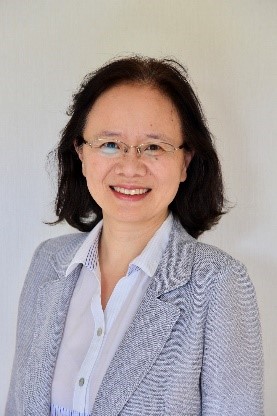
Jian Ping Gong is a distinguished professor of Hokkaido University, Japan. She graduated from Zhejiang University, China, and received Doctor of Engineering at Tokyo Institute of Technology. She joined the faculty at Hokkaido University in 1993. She is focusing on development of novel hydrogels with high mechanical performances, including high strength and toughness, self-healing, shock-absorbing, low surface friction, under water adhesion and bonding, and the applications of the hydrogels as bio-tissues, including cartilages. She received several awards including Wiley Polymer Science Award (2001), The Award of the Society of Polymer Science, Japan (2006), The Chemical Society of Japan Award (2011), and DSM Materials Sciences Award (2014). She published 361 papers that have been cited for more than 14558 times with h-index 56 (ISI Web of Science).
Prof. Yoshihiro Ito
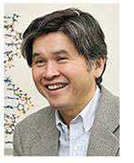
Yoshihiro Ito received bachelor's, master's and doctoral degrees from Kyoto University, Japan in 1981, 1983 and 1987. He was an associate professor at Kyoto University in 1997, and a visiting scholar at the University of California from 1992 to 1993. He was a professor at Tokushima University in 1999. He was a research leader at the Kanagawa Institute of Technology in 2002. From 2004, he serves as chief scientist and laboratory director at the Nanomedical Engineering Laboratory of the Institute of Physical Chemistry. Professor Yoshihiro Ito's main research interests include biomaterials, regenerative medicine engineering, bio-fixation technology, functional polymers, etc., and has published many articles in journals, such as Biomaterials. Now he also serves in Editorial board of many internationally journals such as Journal of Biochemistry and Biomacromolecules.
Prof. Miklos Zrinyi

Miklos Zrinyi received his MS degree in chemistry in Lorand Eotvos University, Budapest, Hungary in 1974. Then he joined to the Department of Colloid Science at the same university as Post Graduate Student (1974-1976). He obtained PhD in 1977 and became a Fellow till 1980. He was First Assistant between 1981-1987 and promoted to Associate Professor between 1988-1992 in the Department of Colloid Science. In 1993 he moved to Department of Physical Chemistry in Budapest University of Technology and Economics as full professor. Between 1994-2007 he was the Head of the Department of Physical Chemistry. Between 2004-2008 he was appointed as Vice-Rector of Budapest University of Technology and Economics. In 2008 he moved to Semmelweis (medical) University. Between 2008 and 2011 he was a professor at Faculty of Pharmacy and in 2011 he moved to Department of Biophysics and Radiation Biology of the same university. In 2011 he founded the Laboratory of and heads it. He published 4 books (in Hungarian), 11 chapters in various books (in English, Japanese and Chinese) more than 270 papers and articles in scientific journals, 6 patents. He has won several awards including Winner of the National Chemical Competition for High School Students in 1996, Alexander von Humbold Fellowship (1991), Albert Szent-Gyorgyi Award (1999), Canon Award (2000), Jedlik Award (2003).
In 2007 he was elected as Corresponding Member of Hungarian Academy of Sciences, and in 2012 he became as Ordinary Member of Hungarian Academy of Sciences.
Current research interests include colloid science, physical chemistry, biophysics, stimuli responsive gels and physics of biomaterials.
Invited Speaker
Prof. Jun Fu
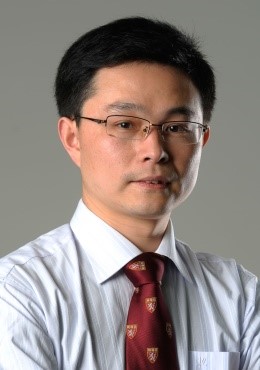
Dr. Fu obtained a PhD degree from the Changchun Institute of Applied Chemistry, Chinese Academy of Sciences (CAS) in 2005. After two years in Max Planck Institute for Polymer Resarch, Mainz, and three years in Massachusetts General Hospital, Harvard Medical School as Research Fellow, he was appointed as full professor at the Ningbo Institute of Materials Technology and Engineering, CAS, where he established the Biomedical Polymer Laboratory. His current research interests include: strong and tough hydrogels, responsive hydrogels and devices, flexible sensors and actuators based on functional hydrogels, and hydrogels for 3D bioprinting and tissue engineering. Dr. Fu has coauthored more than 100 peer-reviewed papers receiving more than 3500 citations and an H-index 30. Dr. Fu currently serves as an Advisory Board Member of Journal of Materials Chemistry B, Royal Society of Chemistry. He has also served as co-organizers of international conferences including the Materials Research Society Meetings.
Prof. Liming Bian
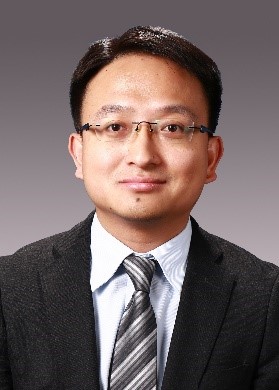
Department of Biomedical Engineering,
The Chinese University of Hong Kong
Website: http://www.bme.cuhk.edu.hk/lbian/
Dr. Bian Liming is currently an associate professor in the Department of Biomedical Engineering at the Chinese University of Hong Kong. Dr. Bian completed his Ph.D. study in Biomedical Engineering at Columbia University in 2009. Dr. Liming Bian then conducted his postdoctoral research in the Department of Bioengineering, the University of Pennsylvania from 2009 to 2012. In 2012, Dr. Bian joined the Chinese University of Hong Kong as an assistant professor. Dr. Bian’s research focuses on the development of novel multiscale biomaterials not only for investigating the role of cell microenvironment factors on stem cell behaviors but also for facilitating the regeneration of diseased or injured tissues and organs. Dr. Bian’s research work has been published in the leading journals including PNAS, JACS, Nano Letters, Biomaterials, Advanced Materials, Advanced Functional Materials, Advanced Science, ACS Nano, Macromolecules, ACS Central Science, Chemistry of Materials.
Prof. Tetsuharu Narita

Dr Tetsuharu Narita has obtained his PhD from Hokkaido University (Sapporo, Japan) in 2000. After several years of postdoctoral works in Sapporo, Strasbourg, and Paris, we works as research associate of the CNRS, National Scientific Research Center of France, since 2003 in the laboratory of Soft Matter Science and Engineering in ESPCI (Industrial Physics and Chemistry Higher Educational Institution of Paris, France). Since 2016 he works also as associate professor of Hokkaido University in the framework of GI-CoRE (Global Institution for Collaborative Research and Education).
Since his PhD work, Dr Tetsuharu Narita has been working on physical chemistry and dynamics of hydrogels. His research interest covers from liquid-like properties of hydrogels including swelling and drying kinetics of hydrogel to solid-like properties including linear and nonlinear rheology, fracture mechanics, and elasto-cappilary wetting, as well as sol-gel transition. Actively using optical techniques, especially dynamic light scattering and microrheology, he characterizes polymer solutions and gels to comprehend the polymer physics in a wide range of length and time scales.
Prof. Alba Marcellan
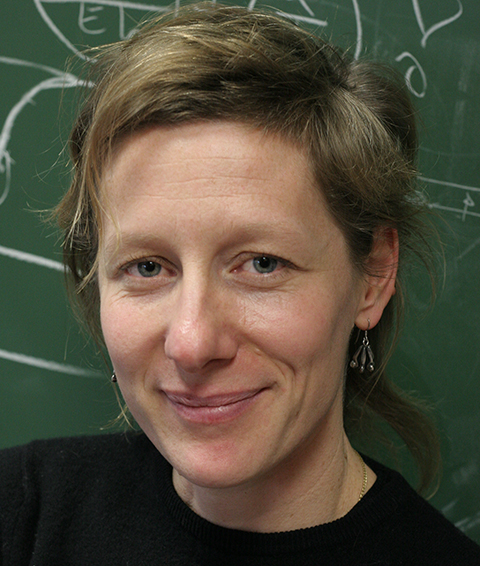
Alba Marcellan is associate professor at Sorbonne University and she carries out her research at the Soft Matter Sciences and Engineering Laboratory at ESPCI Paris.
Initially with a background in materials and mechanics (Ph.D., Ecole des Mines de Paris, Department of Materials Science and Engineering), during the last ten years at the SIMM Laboratory, she has developed a comprehensive picture of the molecular mechanisms involved in the deformation and the fracture (bulk and adhesion) processes of polymer-based materials. Her research is focused on the modeling of behavior and damage mechanisms involved at both macromolecular and meso scales. With her colleagues, she has developed original macromolecular designs, especially gels, i.e. swollen soft polymer networks, with the aim to improve their mechanical response. By using the concepts of polymer physics, she develops “hybrid” model systems that combine covalent (permanent) cross-links and physical (reversible) interactions. She has recently developed a new method of gluing using nanoparticle solutions that can bond gels and biological tissues. She was awarded by the French Polymer Society (Groupe Francais des Polymeres) and she is member of the Institut Universitaire de France.
Prof. Zhen Tong

Professor of Polymer Physics
School of Materials Science and Engineering
South China University of Technology
Wushan, Guangzhou 510640, CHINA
Scientific Vita
1982 B.S., Chemical Engineering, South China Institute of Technology, Guangzhou
1988 Ph.D., Macromolecular Science, Osaka University, Osaka, Japan (Hiroshi Fujita)
1989-1990 Lecturer (讲师), South China University of Technology, Guangzhou
1990-present Professor, South China University of Technology, Guangzhou
Prof. Liang-Yin CHU
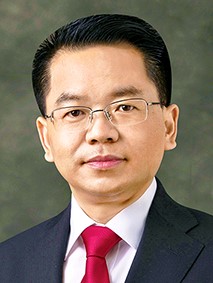
Prof. Liang-Yin CHU is a Distinguished Professor of Chang Jiang Scholars Program in the School of Chemical Engineering and the Head of Office of Scientific Research and Development at Sichuan University in Chengdu, China. He received his Ph.D. degree in 1995 from Northeastern University. Prof. Chu was promoted as a full professor of Chemical Engineering at Sichuan University in 1997 and became Director of the Sichuan Provincial Key Laboratory for Filtration and Separation in 2001. He was a research fellow at the University of Tokyo (1999-2001), a visiting scholar at Harvard University (2006-2007), ESPCI ParisTech (2007-2008) and the University of Birmingham (2011). He has received many honors and awards including the National Technology Invention Award (2018), the Natural Science Awards issued by the Ministry of Education (2003) and Sichuan Provincial Government (2015), Distinguished Young Scholar issued by the National Natural Science Foundation of China (2008), Distinguished Professor of “Chang Jiang Scholars Program” issued by the Ministry of Education (2009), and Fellow of Royal Society of Chemistry (2014). He has authored and co-authored more than 400 peer-reviewed journal articles, 60 patents, 6 books and 15 book chapters.
Prof. Hideyuki Mitomo
Associate Professor, Research Institute for Electronic Science, Hokkaido University, Sapporo, Japan
Global Institution for Collaborative Research and Education, Hokkaido University, Sapporo, Japan
Homepage: https://chem.es.hokudai.ac.jp/en/
Research Career
09/2017 – present: Associate Professor, Research Institute for Electronic Science, Hokkaido University, Japan
04/2011 – 08/2017: Assistant Professor, Research Institute for Electronic Science, Hokkaido University, Japan
06/2009 – 03/2011: Post Doctoral Fellow, Research Institute for Electronic Science, Hokkaido University, Japan
06/2007 – 05/2009: Post Doctoral Fellow, Department of Chemistry, Lehigh University, USA
04/2007 – 05/2007: Post Doctoral Fellow, Graduate School of Bioscience and Biotechnology, Tokyo Institute of Technology, Japan
04/2004 – 03/2007: Research Fellowship for Young Scientists, Japan Society for the Promotion of Science, Japan
Prof. Nobuyoshi MIYAMOTO

Dr. Miyamoto obtained his Ph. D (Engineering) from Waseda University, Japan, in 2004 directed by Professor Kazuyuki Kuroda in the field of inorganic materials chemistry. He worked as a researcher at Tokyo University of Agriculture and Technology (2001-2003) and initiated the research of inorganic nanosheet liquid crystals with Professor Teruyuki Nakato. He then moved to Japan Atomic Energy Agency (2004-2007) and engaged in in-situ structural analyses of soft materials by small angle neutron/X-ray scattering in the research team directed by Professor Takeji Hashimoto. In 2007, he moved to Fukuoka Institute of Technology, Japan, and is currently an Associate Professor of the institute. He is managing the project research (2015-2019) as the Research Director of Materials and Energy Device Research Center of Fukuoka Institute of Technology (FIT-ME) funded by the Strategic Research Foundation Grant-Aided Project for Private University from MEXT, Japan. He is also the Chief Organizer of the West Japan Nanosheet Society since 2012. In 2017-2018, he is working at Laboratoire de Physique des Solides, Univesite Paris Sud (France), as a visiting researcher. His research mainly focuses on the synthesis of advanced functional materials based on the inorganic nanosheets liquid crystals and nanosheet/polymer composites. The main research fields are inorganic chemistry, colloid chemistry, materials chemistry, and polymer chemistry.
Prof. Ryuzo KAWAMURA
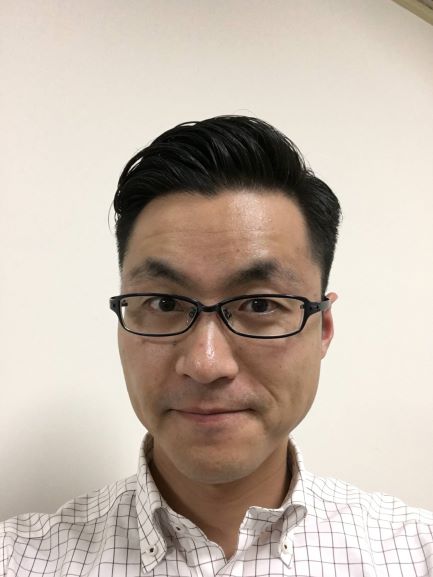
Education-Academic Experience:
2014–present Assistant Professor
Graduate school of Science and Engineering, Saitama University
(Group Leader. Seiichiro Nakabayashi)
2012–2014 Postdoc
Cell Mechanics Research Group, Biomedical Research Institute,
National Institute of Advanced Industrial Science and Technology (AIST)
(Group Leader. Chikashi Nakamura)
2009–2012 Postdoc
Molecular and System Life Science Unit, Advanced Science Institute, Riken
(Prof. Yoshihito Osada)
Prof. Xu-Ming XIE
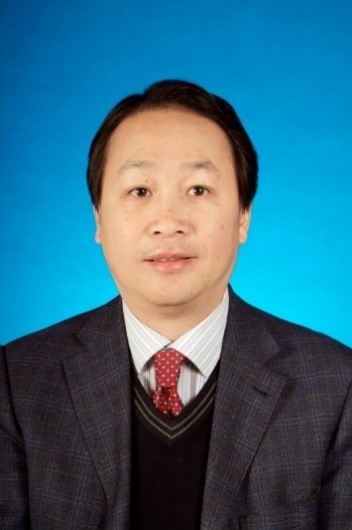
Prof. Jinxiong Zhou
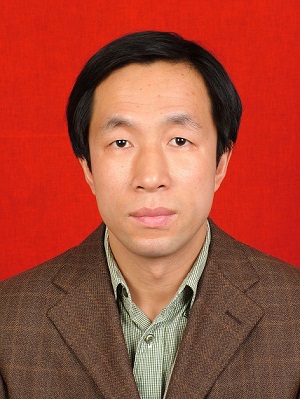
Prof. Jinxiong Zhou obtained his Phd degree in solid mechanics, Northwestern Polytechnical University, 1998. He became an assistant professor of Xi’an Jiaotong University in 2000 and promoted to full professor in 2007. He was the recipient of New Century Talents, Ministry of Education of China in 2006. From 2006.11-2007.11, he was a visiting scholar at Harvard university. He has published 150 peer-viewed journal papers including Adv. Mater., Adv. Func. Mater., APL, and Soft Matter, etc. His h-index is 23 with total 3000 citations.
Prof. Baolin Guo
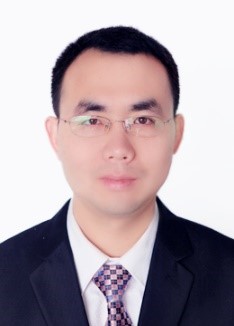
Dr. Baolin Guo got his Ph.D degree in 2011 at Royal Institute of Technology (KTH) under the supervision of professor Ann-Christine Albertsson. From 2012, he joined the Frontier Institute of Science and Technology (FIST), Xi’an Jiaotong University, and worked with professor Peter X. Ma. Now, prof. Baolin Guo is a group leader of biomedical polymers, and he has published more than 68 papers (citation >3000 times) in top international journals, such as Progress in Polymer Science, Nature Communications, Biomaterials, ACS Nano, and Chemistry of Materials. Among them 5 papers are ESI highly cited papers and 2 papers are ESI hot papers. He also holds two funding from NSFC, and He is a referee for Advanced Materials, Biomaterials, ACS Nano, Small, and Biomacromolecules, etc.
Prof. Takamasa Sakai
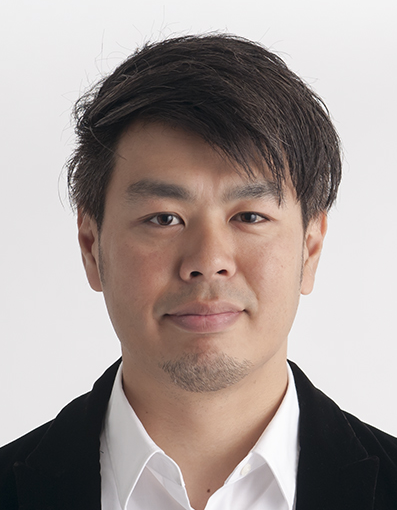
Affiliation: Department of Bioengineering, Graduate School of Engineering, University of Tokyo
• Academic appointments
2008-2009 Project Assistant Professor, Center of Nanobio Integration, University of Tokyo
2009-2011 Project Assistant Professor, Center of Medical System Innovation, University of Tokyo
2011-2015 Assistant Professor, Department of Bioengineering, Graduate School of Engineering,
University of Tokyo
2014-2017 PRESTO, JST, Japan
2015- Associate Professor, Department of Bioengineering, Graduate School of Engineering,
University of Tokyo
Prof. Jeong-Yun Sun
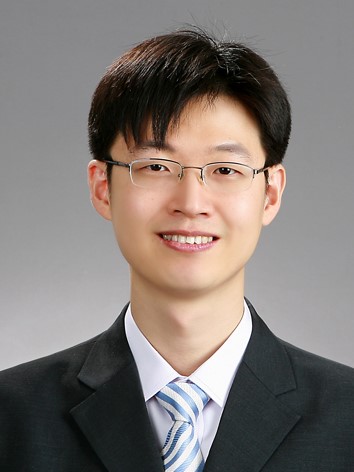
Department of Materials Science and Engineering, Seoul National University.
Career
2018.3 ~ : Associate Professor in Materials Science and Engineering
at Seoul National University in south Korea.
2014.3 ~ 2018.2 : Assistant Professor in Materials Science and Engineering
at Seoul National University in south Korea.
2013.5 ~ 2014.2 : Research Associate in Material Science and Mechanical Engineering at Harvard University in USA.
2012.1 ~ 2013.4 : Post Doctoral Fellow in School of Engineering and Applied Science at Harvard University in USA.
(Adviser: Prof. Zhigang Suo)
Prof. Zhihong Nie

聂志鸿,复旦大学高分子科学系特聘教授、博士后导师。2000年本科毕业于吉林大学化学系,2003年于中科院长春应用化学研究所安立佳研究员(中国科学院院士)指导下获得高分子物理与化学硕士学位,2008年于加拿大多伦多大学Eugenia Kumacheva教授(加拿大皇家科学院院士)指导下获得高分子材料与化学博士学位。2008-2010年间于哈佛大学George M. Whiteside教授(美国科学院、工程院、艺术与科学院三院院士)研究组进行NSERC博士后研究。2011年受聘为马里兰大学帕克分校化学与生物化学系助理教授开展教学和科研工作,并于2017年获得终身教职位(Tenured Associate Professor)。曾获美国自然科学基金会杰出青年教授奖、3M公司青年教授奖、美国化学会石油研究基金奖、马里兰大学优秀教授奖等奖项。。主要研究方向为聚合物和粒子合成自组装、生物成像和药物释放、仿生复合材料和微流控等。迄今在Nat. Materials., Nat. Nanotech., Nat. Commun., J. Am. Chem. Soc., Angew. Chem. Int. Ed.等期刊上发表论文100余篇,论文被引用10000余次。